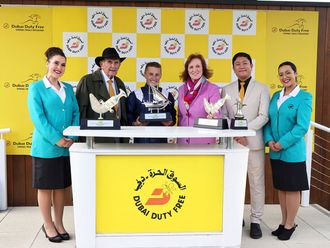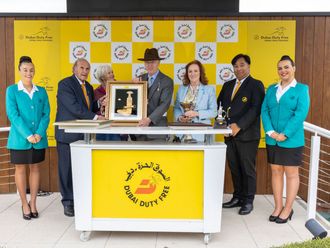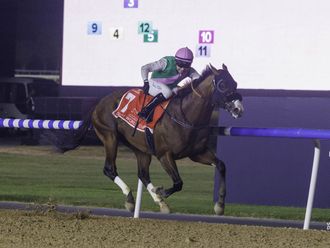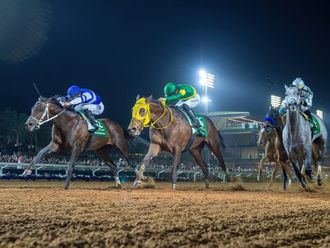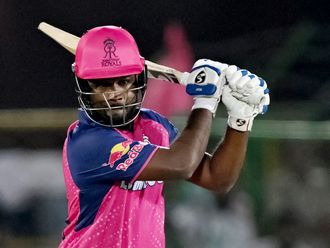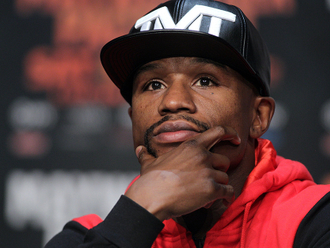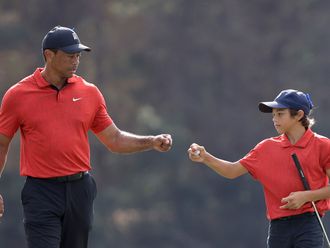Dubai: Godolphin’s Best Solution, who was eighth in the Group 1 Derby at Epsom, and Wolf Country both run in the Group 2 King Edward VII Stakes. a race popularly referred to as the Ascot Derby.
Notable winners of the contest include Nathaniel (2011), Shareef Dancer (1983) and Mutafaweq (1999), horses who would go on to greater glory.
Godolphin have a third representative in Hugo Palmer’s Best Of Days, who makes his seasonal return in the 12-furlong contest following a progressive juvenile campaign that included a game victory in the Group 2 Royal Lodge Stakes at Newmarket in September.
Godolphin handler Saeed Bin Surour remarked: “Best Solution ran well in the Derby but would prefer softer ground. This trip suits him well and he has been working nicely.”
Charlie Appleby, Godolphin’s co-trainer, added: “The drop back in trip didn’t really suit Wolf Country in the Dante, when he turned in well but just lacked a bit of pace to finish fifth.
“He has physically done well since then. We have a bit to find on the ratings, but I feel he should be competitive back over a mile and a half.
“He has won twice with juice in the ground but his homework has been good on quicker ground.”
Palmer said of Best Of Days: “He seems to be improving all of the time and I am excited about running him over a mile and a half.
“My only slight misgiving is that we are going into a G2 at Royal Ascot on his seasonal reappearance, which is not an easy thing to do.”
Alqamar, a decisive 12-furlong handicap scorer at York on May 19, and the consistent Secret Advisor both represent Appleby in the Group 2 Queen’s Vase.
Appleby said: “Both Alqamar and Secret Advisor have very stout pedigrees, so we are hoping that the step up in trip will see further improvement.”
Bin Surour’s Red Galileo, successful in a Meydan handicap at the start of the year, lines up in the Duke Of Edinburgh Handicap alongside Appleby’s Rare Rhythm.
Formerly known, and still colloquially referred to as the Ascot Derby, the King Edward VII Stakes was inaugurated in 1834 and regularly featured horses of both sexes that had competed in the middle-distance Classics.
First run as the King Edward VII Stakes in 1926 and now restricted to three-year-old colts and geldings, the G2 contest still attracts horses that have competed in the Derby.
Notable winners include: Supreme Court (1951), Ile De Borbon (1978) & Nathaniel (2011). They all progressed to win the G1 King George VI & Queen Elizabeth Stakes at Ascot in the same season.
Shareef Dancer (1983) — Won the G1 Irish Derby next time out. Light Cavalry (1980) & Mutafaweq (1999) — Subsequently won the final British Classic, the G1 St Leger at Doncaster in September.


